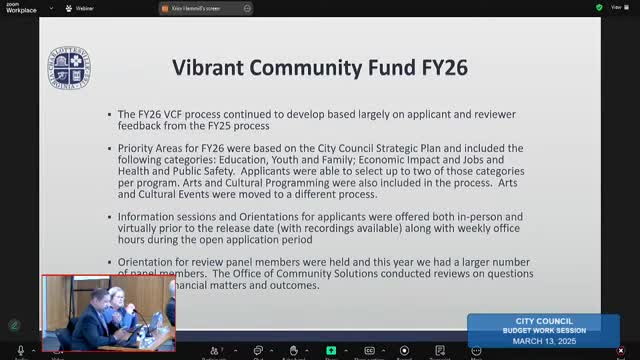Article not found
This article is no longer available. But don't worry—we've gathered other articles that discuss the same topic.
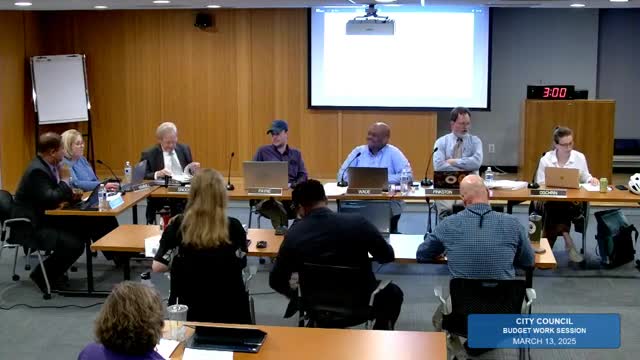
Charlottesville reschedules tax-rate public hearing after ad ran in wrong section; budget hearing set for March 20
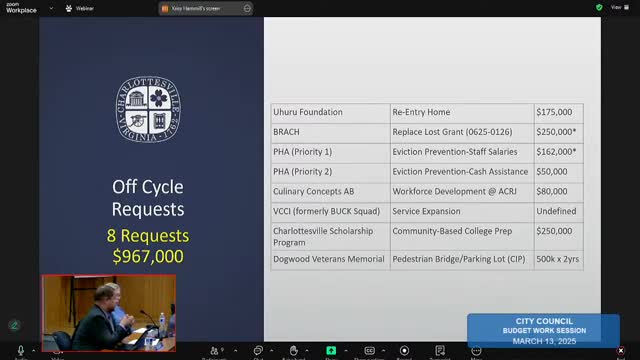
City compiles off‑cycle requests; staff proposes $1.04 million discretionary pool including Strategic Initiatives Fund for council to allocate
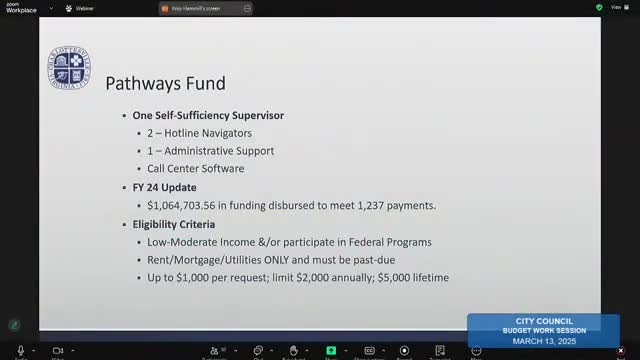
Pathways fund has dispersed hundreds of payments; staff propose options to limit spending and preserve reserves
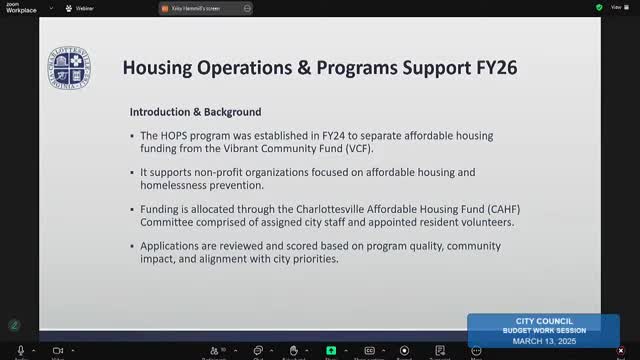
Charlottesville outlines HOPS and CAF recommendations as requests far outstrip available $575,000
